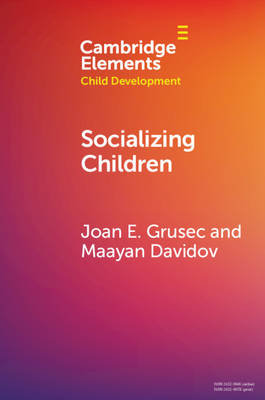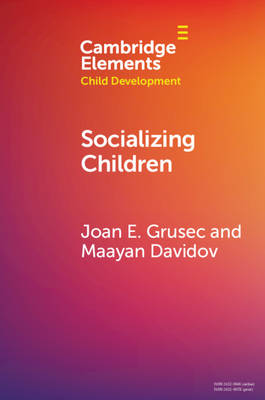
- Afhalen na 1 uur in een winkel met voorraad
- Gratis thuislevering in België vanaf € 30
- Ruim aanbod met 7 miljoen producten
- Afhalen na 1 uur in een winkel met voorraad
- Gratis thuislevering in België vanaf € 30
- Ruim aanbod met 7 miljoen producten
Zoeken
Omschrijving
Complaints are often made that recommendations about how to rear children are contradictory and, therefore, not helpful. In this Element we survey the history of theory and research relevant to childrearing in an attempt to show how apparent differences can be resolved. We suggest that socialization occurs in different domains, with each domain fostering socialization in a different way. Thus there is no all-purpose principle or mechanism of socialization but, rather, different forms of relationship between child and agent that serve a different function, involve different rules for effecting behavior change, and facilitate different outcomes. Using this framework, we survey research relevant to different domains, including the roles played by parents, siblings, and peers in the socialization process. We follow this with a discussion of how culture and biology make their contribution to an understanding of domains of socialization.
Specificaties
Betrokkenen
- Auteur(s):
- Uitgeverij:
Inhoud
- Aantal bladzijden:
- 75
- Taal:
- Engels
- Reeks:
Eigenschappen
- Productcode (EAN):
- 9781108827034
- Verschijningsdatum:
- 27/05/2021
- Uitvoering:
- Paperback
- Formaat:
- Trade paperback (VS)
- Afmetingen:
- 152 mm x 229 mm
- Gewicht:
- 122 g

Alleen bij Standaard Boekhandel
+ 63 punten op je klantenkaart van Standaard Boekhandel
Beoordelingen
We publiceren alleen reviews die voldoen aan de voorwaarden voor reviews. Bekijk onze voorwaarden voor reviews.











